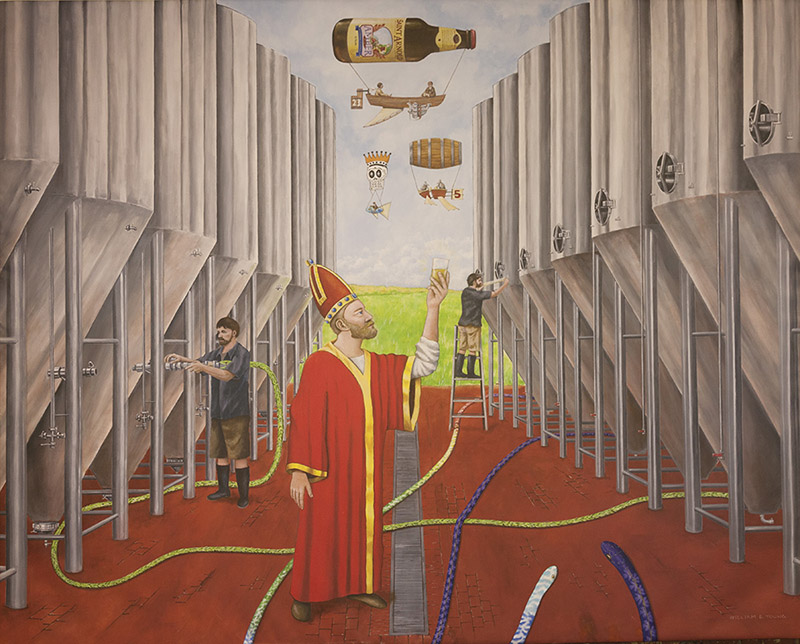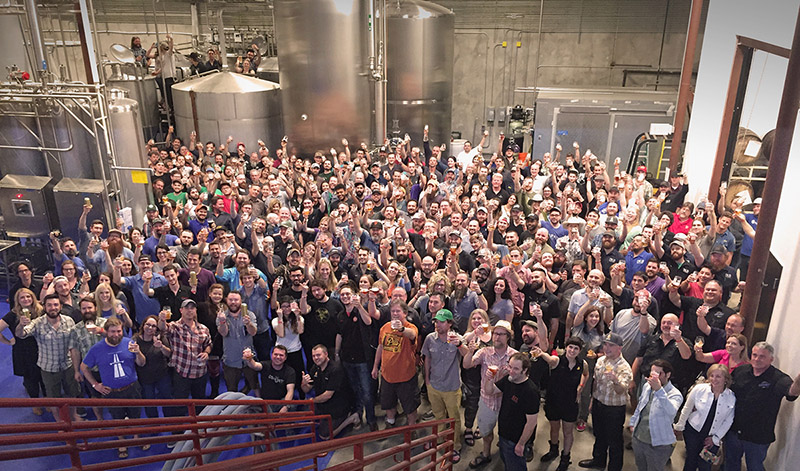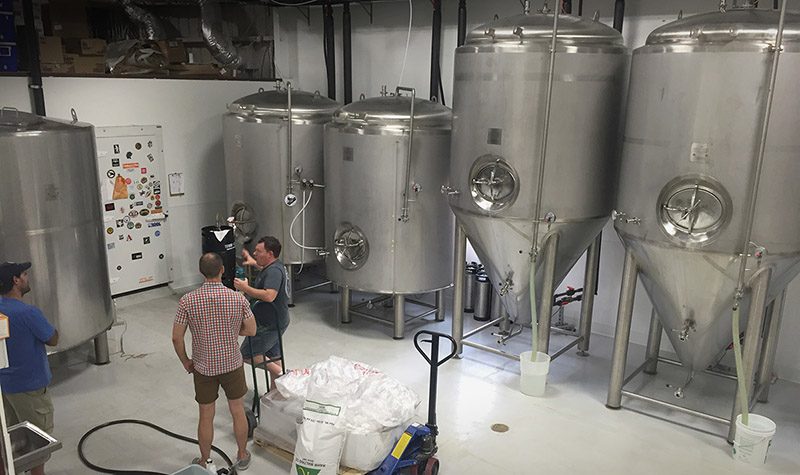Beer enjoys a rich and important place in Texas history. Nineteenth century Czech and German immigrants brought their knowledge and love of brewing to Central Texas, and began a long tradition of local beer making that flourishes today throughout the state. Lone Star, Pearl, Shiner, and dozens of other legendary brews made in Texas satisfied beer drinkers until Prohibition. Legend is that George Kosmos, Spoetzl Brewing’s brewmaster, served 18 months in jail after taking the rap for an illegal shipment of “ice" that was actually beer headed to Houston. His little brewery in Shiner survived Prohibition, and thrives today as the fifth-largest craft brewery in the US.
San Antonio had historically been a hub of beer production in Texas, with many of the state’s largest breweries located there. Until the ’60’s, when Anheuser-Busch, Miller, and Schlitz built massive brewery operations in Houston, Fort Worth and Longview (respectively) and changed the Texas beer landscape forever. Megabrews reigned, captured marketshare, and by 1980 there were only 80 brewery operations in the entire US. Six of those were in Texas, but they were huge operations that made Texas the Number Two beer-producing state in 1983.
Murals inside Saint Arnold Brewing Company depict various scenes of the brewer's patron saint's imagined life across Texas.
In 1994, Texas’s second-oldest extant craft brewery, Saint Arnold’s Brewing Co., opened its doors in Houston. By 2011, the Texas craft beer industry grew to have an economic impact of over $608 Million. The industry has been so explosive that the Texas Craft Brewers Guild has conservatively estimated the total impact to be at least $5.6 Billion by 2020, which equates to about 52,000 new jobs. And that estimate is conservative. Just one year later, in 2012, the industry’s economic impact was $2.3 Billion.
* Wet, Dry, or Moist - where you are in Texas determines what you can and cannot drink. It’s called “Local Option", it’s enshrined in the Texas Constitution, and it means that Texans suffer some of the most diverse and confounding alcohol regulations in the US. Seven Texas counties ban all alcohol sales. It’s gotta suck to live there if you like beer. Fifty-three counties permit sales of all types of alcohol - the rest regulate alcohol sales and use in a bewildering variety of ways. Yes beer, no beer, not on Sunday, after noon on Sunday. Literally walking across the street can mean the difference between enjoying a beer or doing without.
Photo by Mike Laur © DG2C
Texas Craft Brewer's Guild members pose for a group shot inside Austin Beerworks new facility in February 2017.
Texas beer faces another threat, the recently passed "beer bill" that places a limit on how much brewers can brew before being faced with additional distribution fees. The bill forces breweries that produce more than 225,000 barrels of beer a year to pay for distribution. While that may not sound bad at first glance, consider the following: breweries that produce beer and distribute it in their own taproom, all on their own property, are not exempt from the law. However, several breweries that are owned by large, out-of-state conglomerates like Anheuser-Busch and MillerCoors are exempt from the law, while other like small, independent, and Colorado-owned Oskar Blues are not. The future of the Texas beer industry is still unclear.
By our count, 271 breweries have opened or are opening their doors in the state of Texas, and the vast majority of them are small, local, and independent. Best of all, you can find them just about everywhere in the state, from the Texas Panhandle to the Rio Grande Valley. And the entire gamut of beer styles are available, too, so you’ll be happily sipping lagers like Shiner Bock, ales like Adelbert’s Sratchin’ Hippo, and everything in between.
Photo by Mike Laur © DG2C
Town in City Brewing's facility is on the edge of one of many wet/dry demarcations in Texas. Businesses just across the street are all dry.
That’s where our map and beer guide can help. At each of these 271 locations, you’ll find local beer made on-site. From A-B’s Houston factory to San Angelo’s Zero One Ale House, we’ve tried our best to lead the way to all the beer makers in the Lone Star State. Now, it’s up to you to find them, visit them, and hopefully discover your next favorite beer along the way that’s not a light-beer longneck. Support your local brewers, and let them know your local option is to Support Texas Beer.
* All-Dry counties prohibit the sale of alcohol. Most jurisdictions in Texas are a mix of dry and wet, with various laws that can change from neighborhood to neighborhood. Dry areas in Texas are dwindling as laws and social conventions change, but do not underestimate the reach of the long arm of the law in any of the seven dry counties in Texas: Borden, Collingsworth, Hemphill, Kent, Martin, Roberts and Throckmorton. Even possession of alcohol can be punishable by fines or jail time.



